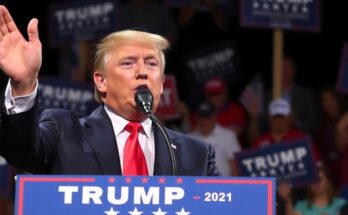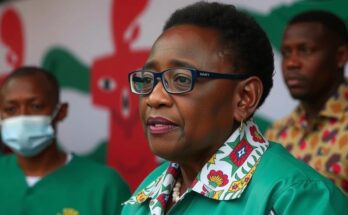The National People’s Assembly elections in Guinea-Bissau, set for 24 November, face significant challenges due to the lack of legitimacy of the National Elections Commission and the paralysis of the Supreme Court. Following President Umaro Embaló’s controversial dissolution of the ANP and subsequent political tensions, the electoral process risks further institutional fragility. Efforts must be made to engage political actors and possibly postpone the elections to address these systemic issues to ensure credible elections and maintain stability in the country.
The impending elections for the National People’s Assembly of Guinea-Bissau, scheduled for 24 November, are fraught with challenges due to a lack of legitimacy among the electoral institutions responsible for their organization. This scenario arises amidst elevated political tensions and instability following President Umaro Embaló’s controversial dissolution of the Assembly. This dissolution, the second in a year, appears to reflect Mr. Embaló’s desire to reshape the political landscape to his advantage, particularly after the Inclusive Alliance Platform, led by the PAIGC, secured a dominant position in prior legislative elections. Faced with the expiration of the National Elections Commission (CNE) leadership’s mandate since April 2022, the electoral landscape in Guinea-Bissau is marred by institutional dysfunction. The ANP’s inability to elect new CNE executives, coupled with continuing governmental interference, has exacerbated concerns around the electoral process’s integrity. Meanwhile, the Supreme Court, tasked with overseeing elections and resolving disputes, also faces paralysis, hindered by political machinations surrounding its presidency and suspensions of key judges. As a result, the court lacks the necessary quorum to adjudicate electoral matters, severely undermining its mandate. To mitigate these issues, it is imperative for President Embaló to engage in dialogue with political and institutional stakeholders to secure a broad consensus aimed at restoring normalcy. The Economic Community of West African States (ECOWAS) is urged to facilitate this process by potentially postponing elections, thereby allowing time to rectify these critical institutional shortcomings. By addressing the legitimacy crisis surrounding the CNE and the Supreme Court, stakeholders can reinforce trust in these vital institutions, fostering a conducive environment for credible elections and reducing the risk of political instability post-elections.
Guinea-Bissau is approaching significant elections, which typically would contribute to its political stability and democratization. However, the context surrounding these elections is complicated by a history of institutional fragility and recent controversial governmental actions. President Umaro Embaló’s dissolution of the National People’s Assembly (ANP) not only raises questions about the legitimacy of the electoral commission’s mandate but also highlights ongoing political tensions and instability within the country. With the expiration of both the National Elections Commission’s leadership and the Supreme Court’s functionality, the country’s ability to conduct fair and credible elections is severely threatened. This backdrop necessitates focused interventions from local leaders and regional powers like ECOWAS to resolve these issues ahead of the elections.
In conclusion, the upcoming elections in Guinea-Bissau are threatened by a significant institutional crisis stemming from the illegitimacy of the electoral bodies and the paralysis of the Supreme Court. For the elections to be credible and contribute to political stability, it is essential that President Embaló initiates dialogues with various political factions to reach a consensus. Furthermore, involvement from ECOWAS in mediating the situation may be vital in ensuring a fair electoral process. Rectifying the leadership of the CNE and the judiciary will be essential to restore confidence among political stakeholders and enable a smooth electoral transition, thereby avoiding further exacerbation of the country’s political crisis.
Original Source: www.premiumtimesng.com




